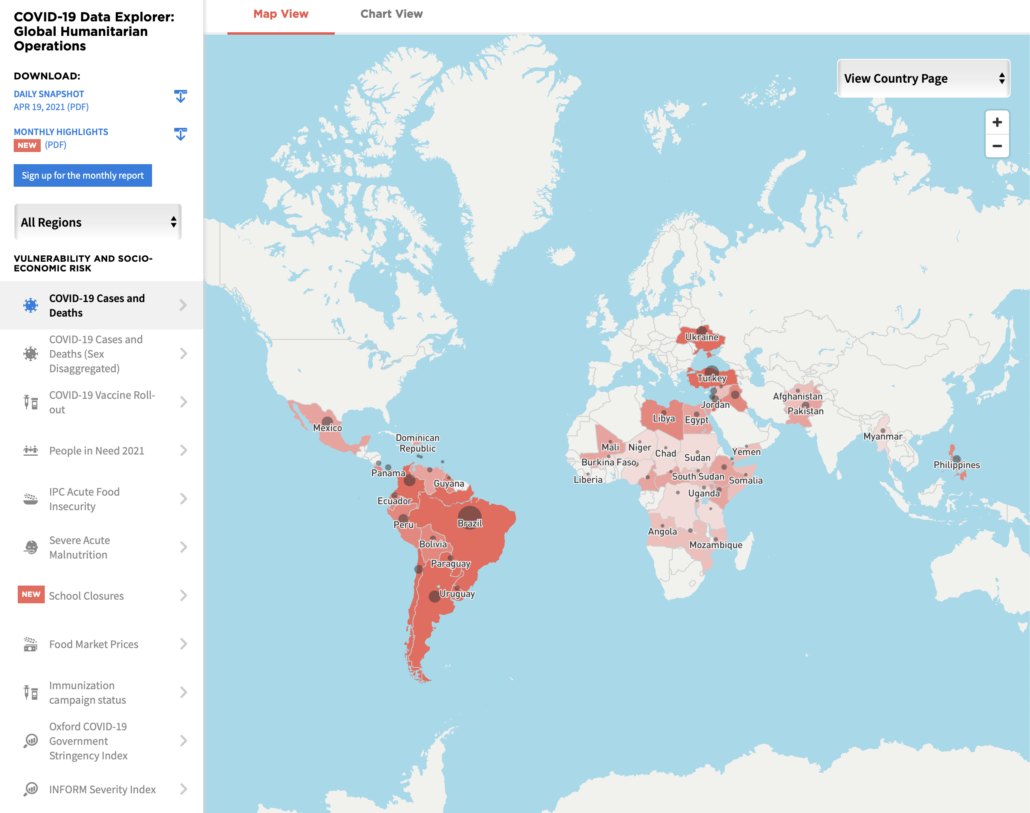COVID-19 Data Explorer (Centre for Humanitarian Data)
As part of the Humanity Hub’s first seasonal programming theme, focusing on COVID responses, we will share insights by members of the Humanity Hub community and the Hague Peace & Justice ecosystem. This week, we are spotlighting Centre for Humanitarian Data’s COVID-19 Data Explorer.

About one-third of the 17 million global COVID-19 cases are coming from 63 countries that have a refugee or humanitarian operation.
To help understand the progress of the virus and its impact on already vulnerable people in these locations, the Centre for Humanitarian Data has created a map explorer that brings together dozens of datasets from over 20 sources. They hope this tool is useful to decision makers as they prioritize resources in a time of unprecedented need.
Although there are many useful visualizations available to monitor the spread of the virus, OCHA management was looking for a way to focus specifically on the countries included in the COVID-19 Global Humanitarian Response Plan (GHRP), which was launched in April. The request was to bring together data related to underlying vulnerability and socio-economic risk as well as the level of humanitarian and international financing going towards the response. For instance, how are the mitigation measures for COVID-19 affecting access to humanitarian assistance and planned vaccination campaigns, and where are we seeing countries fall into deeper need because of insufficient funds?
Some of the key datasets you can view in the map explorer include:
- COVID-19 cases and deaths, from WHO.
- The number of people in need, refugees and internally displaced people, from OCHA, UNHCR and IDMC.
- The top access constraints into and within countries and their impact, from OCHA.
- Food market prices across a range of commodities, from WFP, and acute food insecurity, from National IPC Technical Working Groups.
- The status of current vaccination campaigns and annual vaccination levels, from ministries of health.
- Humanitarian funding levels for the GHRP, as well as CERF and pooled fund allocations, from OCHA.
- Grants and loans from International Financing Institutions such as the World Bank and IMF, collated by OCHA.



